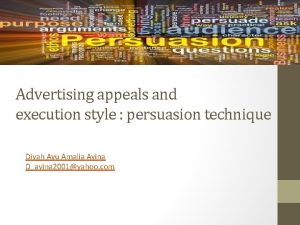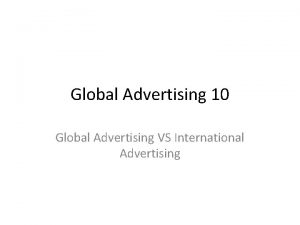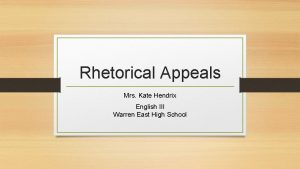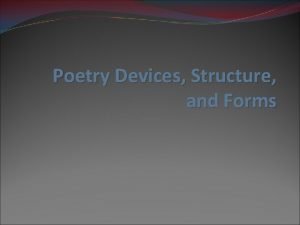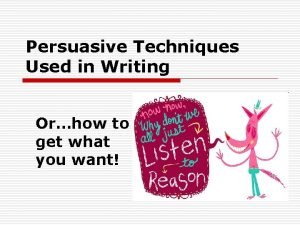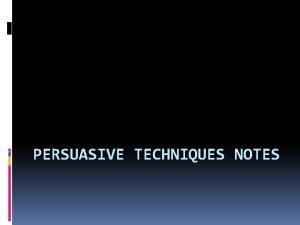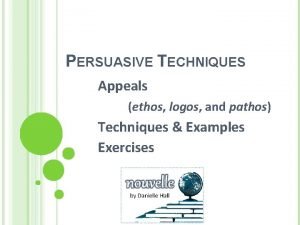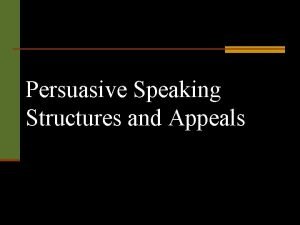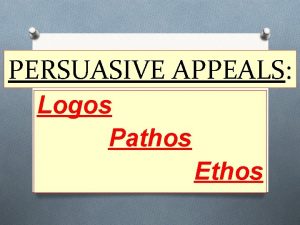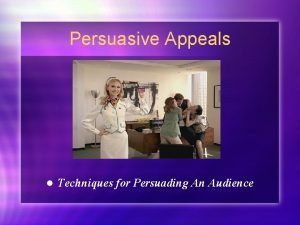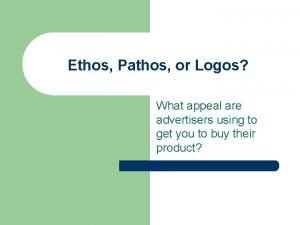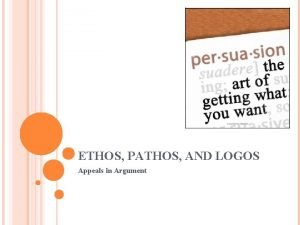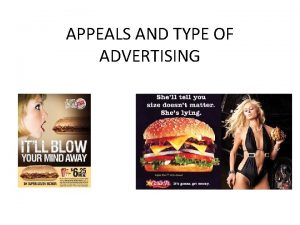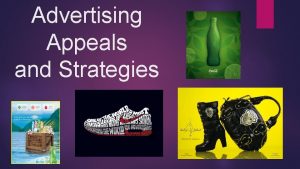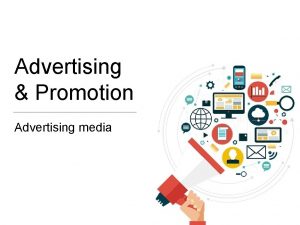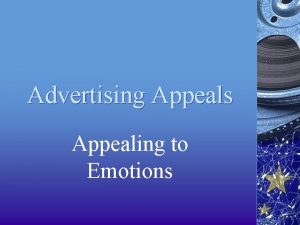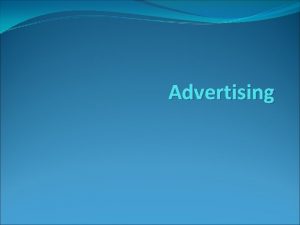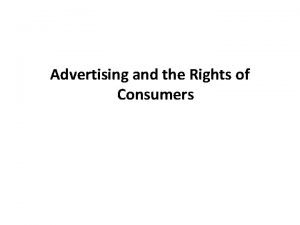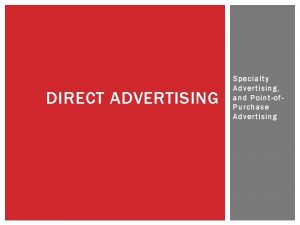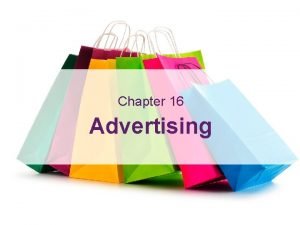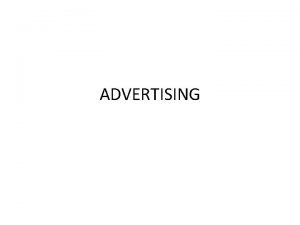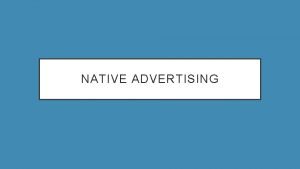APPEALS AND TYPE OF ADVERTISING Appeals and Type

















- Slides: 17

APPEALS AND TYPE OF ADVERTISING

Appeals and Type of Advertising (Leech, English in Advertising, chapter 6) • The particular appeal (and therefore the particular type of advertisement) to use depends on the following : 1. 2. 3. 4. products media audiences aims

PRODUCTS Leech, English in Advertising, chapter 6 • To advertise a product means to make a choice in terms of: • vocabulary • syntax

Products (2): Vocabulary Leech, English in Advertising, chapter 6 • Adjectives are much more used than substantives. • Why? – Substantive are usually very concrete – Adjectives can be highly informative – Adjectives can be evaluative => associate the product to feelings => product added-value • There are homogeneous set of adjectives for each class of products

Products (3): vocabulary – adj. Leech, English in Advertising, chapter 6 • Example of the most common used adj. s in woman’s clothing: New – Good – Soft – Warm – Free – Full – Lovely – Wonderful – Easy – Light – High – Perfect – Smooth – Luxurious – Slim – Smart – Fashionable – Practical – Washable

Products (4): Syntax Leech, English in Advertising, chapter 6 • High frequency of minor sentences – (“when still warm, it is good”) • They are used – to emphasise illustrations and headlines – to capture the imaginative appeal of the product. • They describe in an impressionistic way the qualities of the product. • The text is thus emotionally descriptive

Media Leech, English in Advertising, chapter 6 • We have different types of media: – TV commercials – Radio commercials – Printed advertising – (E)Mail

Layout of print advertising l a u s • Headline/Hook • Subhead • Caption Body-text • i V Copy copy • Signature • Slogan/slogo

Audiences Leech, English in Advertising, chapter 6 • We have different types of language according to – AGE – SEX – SOCIAL STATUS – GEOGRAPHICAL AREA.

Audiences

Aims Leech, English in Advertising, chapter 6 • Advertising may promote – a product – a service (bank, insurance) – a commercial enterprise – the so-called ‘prestige’ advertising

Aims (2)

PRESTIGE ADVERTISING • Environment Introduction Toyota cares of its environment • Toyota in Europe has a clear vision for the future, a growing market share, rapidly expanding manufacturing operations, an exciting range of vehicles - with state-of-the-art engines - and a proven track record of customer satisfaction. However, our success in Europe does not affect the attention we pay to the impact that our activities and vehicles - have on the environment and we are strongly committed to reduce constantly these impacts over the time. • (http: //www. toyota-europe. com/environment/)

Prestige Ad (2) • clear vision for the future • growing market share • expanding manufacturing operations • a proven track record of customer • our success in Europe • The words (taken from the Toyota advertisement) are not only eulogistic in themselves but have strong positive connotations

Aims • The way we structure information also depends on the aim of our discourse. • Information => meaning is structured as a genre • A genre is a communicative event defined by the participants, the topic and the type of register used.

AIMS OF DISCOURSE • There exist four main aims of discourse: • Expressive Literary • Referential Persuasive • • Conversation Letters Diaries Blog texts • Exploratory • Scientific • Informative Novel Short story Drama Poetry Advertising Political speech Religious sermons

PERSUASIVE DISCOURSE • Persuasive discourse can be reached with the following: � the ethical argument (testimonials) � the pathetic argument (emotions) � the logical argument (deductions)
 Advertising appeals
Advertising appeals Global advertising and international advertising
Global advertising and international advertising Defense office of hearings and appeals
Defense office of hearings and appeals Appeals to logic
Appeals to logic Rhetorical devices kahoot
Rhetorical devices kahoot Tactile imagery
Tactile imagery Persuasive essay strategies
Persuasive essay strategies Persuasive appeals
Persuasive appeals Persuasive techniques appeals
Persuasive techniques appeals Choosy moms choose jif ethos pathos logos
Choosy moms choose jif ethos pathos logos Problem solution persuasive speech topics
Problem solution persuasive speech topics Logos example
Logos example Ethos
Ethos Persuasive appeals
Persuasive appeals Space cat english choices
Space cat english choices Appeals ethos pathos logos
Appeals ethos pathos logos What is ethos appeal
What is ethos appeal Persuasive techniques ethos
Persuasive techniques ethos
